What a year it was for sport – even if the backdrop was sometimes murky
In 2022 some legends fulfilled their destinies while others only just began their stories. Jack Rathborn looks back on a thrilling year of sport

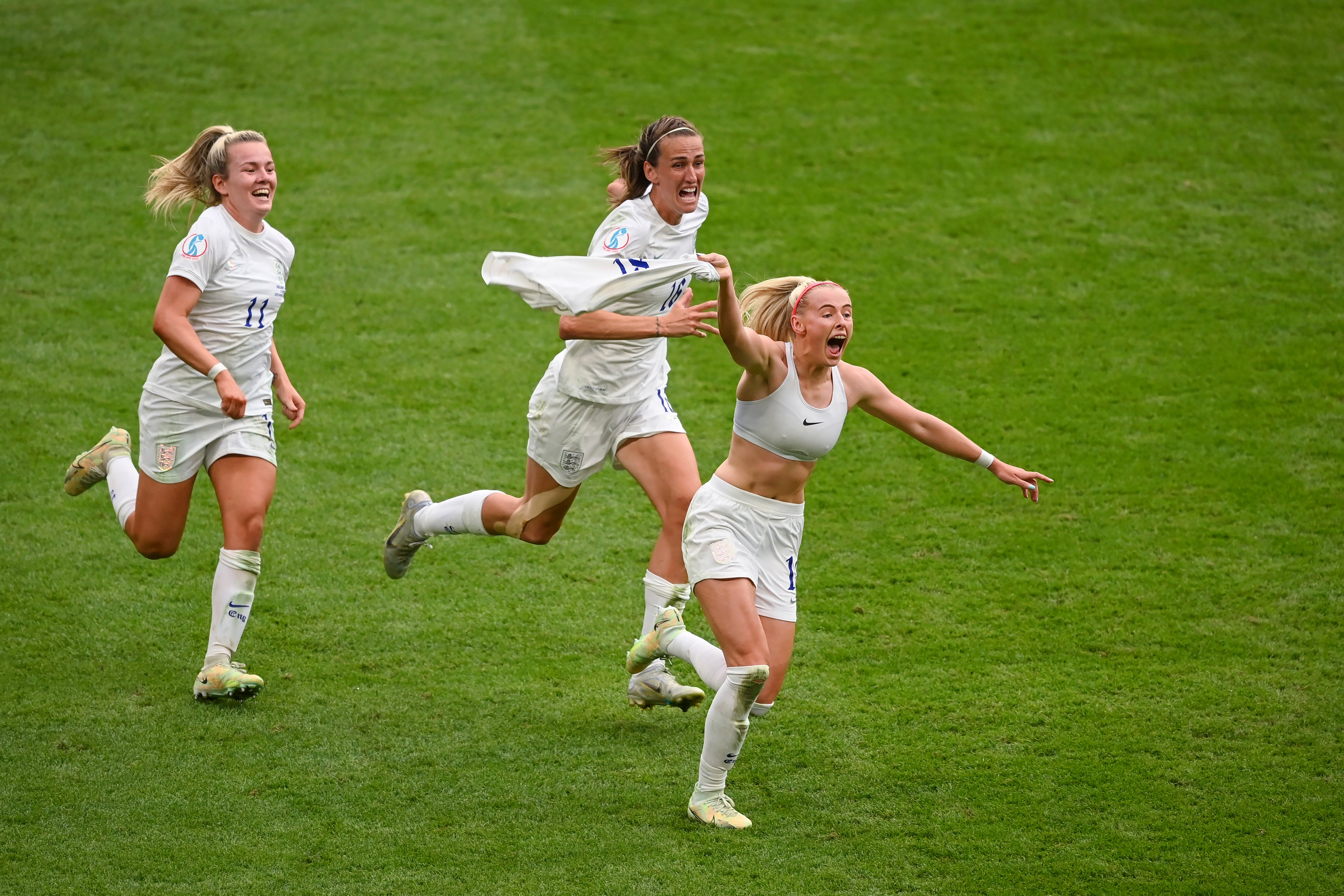
The purity of Lionel Messi fulfilling his destiny for Argentina contrasted with the murky backdrop that was the Qatar World Cup to define sport in 2022. But while Messi’s new territory provides fulfilment after his journey to match – and now surpass – Diego Maradona, another breakthrough on the pitch saw fresh vigour and enlightenment for what is to come. England’s Lionesses secured Euro 2022 glory, the first major women’s trophy, masterminded by Sarina Wiegman, who has quickly fixed minds on next year’s World Cup. The bar has been raised. English women’s football changed forever.
If Fifa naively expected the world to “stick to football” throughout their showpiece event, Qatar 2022 made sure the beautiful game and sport will forever be entwined with politics.
The scandal surrounding human rights rose from the moment the first brick was laid for Qatar’s collection of spaceship stadia that rose in the desert and was followed by Iranian players protesting against the brutality suffered back home and then the feeble nature of eight nations, including England and Wales, over the hapless OneLove armband to protest against social injustice.
It was an immoral spectacle, and yet a masterclass in sportswashing given the clamour surrounding the sensational entertainment seen on the pitch. From Saudi Arabia beating Argentina and Japan effectively knocking Germany out in the group stage, to Morocco’s rousing run to the semi-finals. A two-fold journey and an African first given who they ran through. The Atlas Lions condemned a tearful Cristiano Ronaldo’s final wish – to seize the throne with Portugal – to the scrapheap.
Back home, there was disappointment for Robert Page’s dismal Welsh Dragons’ group stage exit, yet that only emphasised just how far they have come, punching above their weight in time to witness the Gareth Bale era soon fading to black.
The Three Lions dared to dream of another tournament final after Euro 2020, yet Gareth Southgate’s men left with a grimace, matching but eventually succumbing to France in the quarter-finals after Harry Kane cracked under the limelight of a second penalty. Les Bleus wriggled free en route to the Lusail final against Argentina, where Kylian Mbappe matched Geoff Hurst’s previously unique final hat-trick. It was in vain for Messi’s successor though, as the cruel, yet magnetic spectacle that is penalties smiled kindly again on the Albiceleste after a 3-3 draw to bring the curtain down on perhaps the greatest game we have ever seen.
If the Lionesses are to replicate such a feat in Australia and New Zealand next July and August, then Beth Mead, this year’s BBC Sports Personality of the Year, must prolong a sparkling run of form. The Arsenal forward, snubbed by Great Britain for the Tokyo Olympics, produced a majestic run of form, including six goals and five assists, to lead England to glory and earn the Golden Boot and Best Player awards.
But Wiegman’s women run deeper than Messi’s Argentina, with Mead’s impact complimented throughout their historic run. From super-sub Alessia Russo and that backheel nutmeg goal, to Chloe Kelly and the extra-time winner that inspired that iconic celebration with Wembley rocking. Hearts captured, a nation enthralled and the tantalising prospect of more to come.
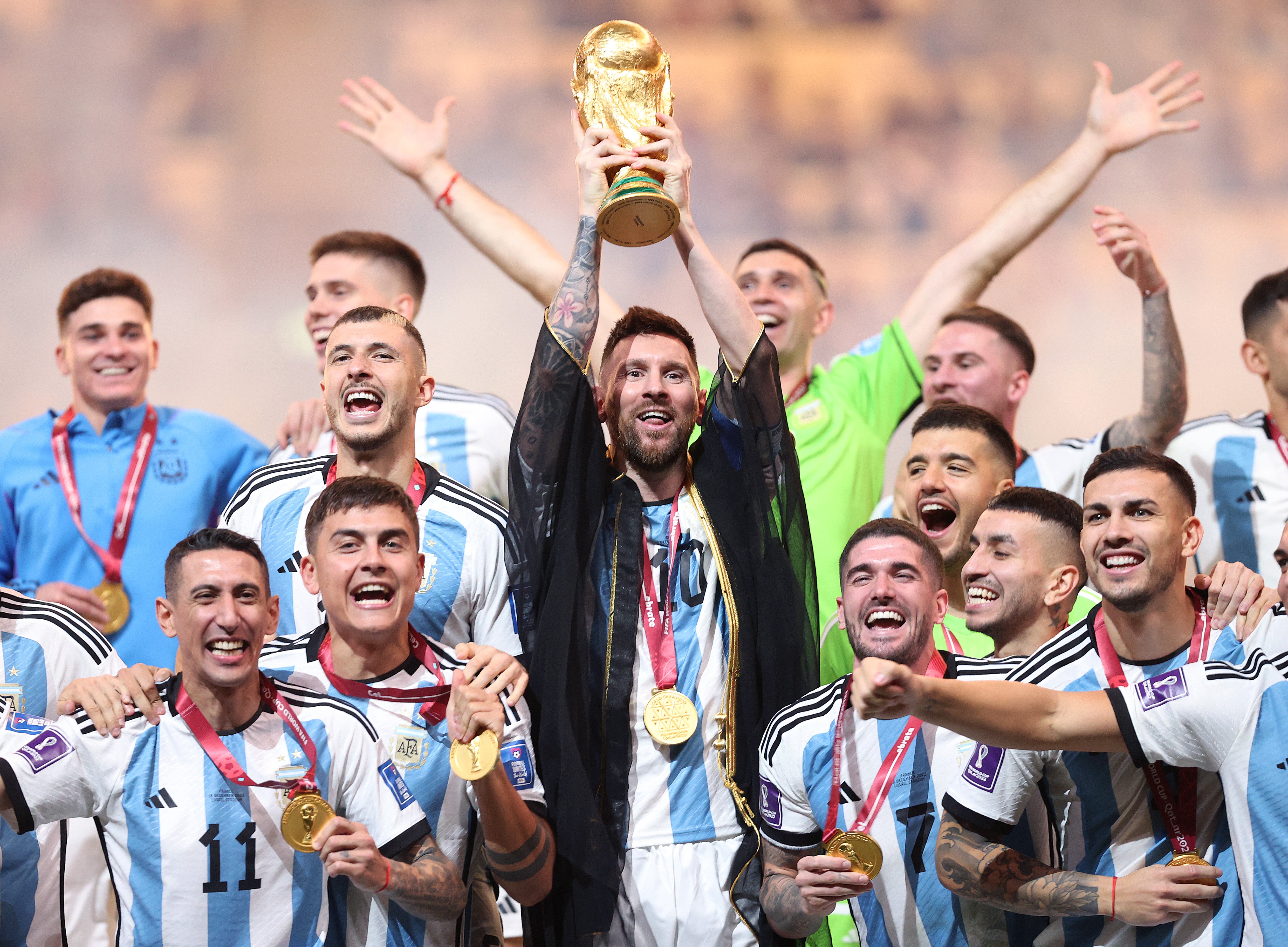
Sport’s unmistakable relationship with scandal and controversy
While there is joy and happiness in sport and its transformative potential to transcend society, as seen above, it can also shine a light on the ugly side of human nature. The Winter Olympics and its peculiar host Beijing, who were forced into acquiring 1.2 million cubic tons of artificial snow for the privilege, was the scene of one of sport’s greatest scandals.
Outrage, sympathy and despair surrounded Kamila Valieva, the Russian figure skater who had landed an astonishing and unprecedented quadruple jump in the team event to earn gold for the Russian Olympic Committee. But then, the most stunning first page from this notorious Olympic chapter was turned. Valieva had returned a positive test for banned angina drug trimetazidine six weeks before the Games. Just a child at 15, Valieva would eventually capitulate under immense scrutiny, falling multiple times as the dream morphed into a nightmare fourth place.
An inescapable bitter taste overall, with the aftermath to that story far from over, but Eve Muirhead captured the imagination of the nation momentarily infatuated by curling as Great Britain’s women took a precious gold.
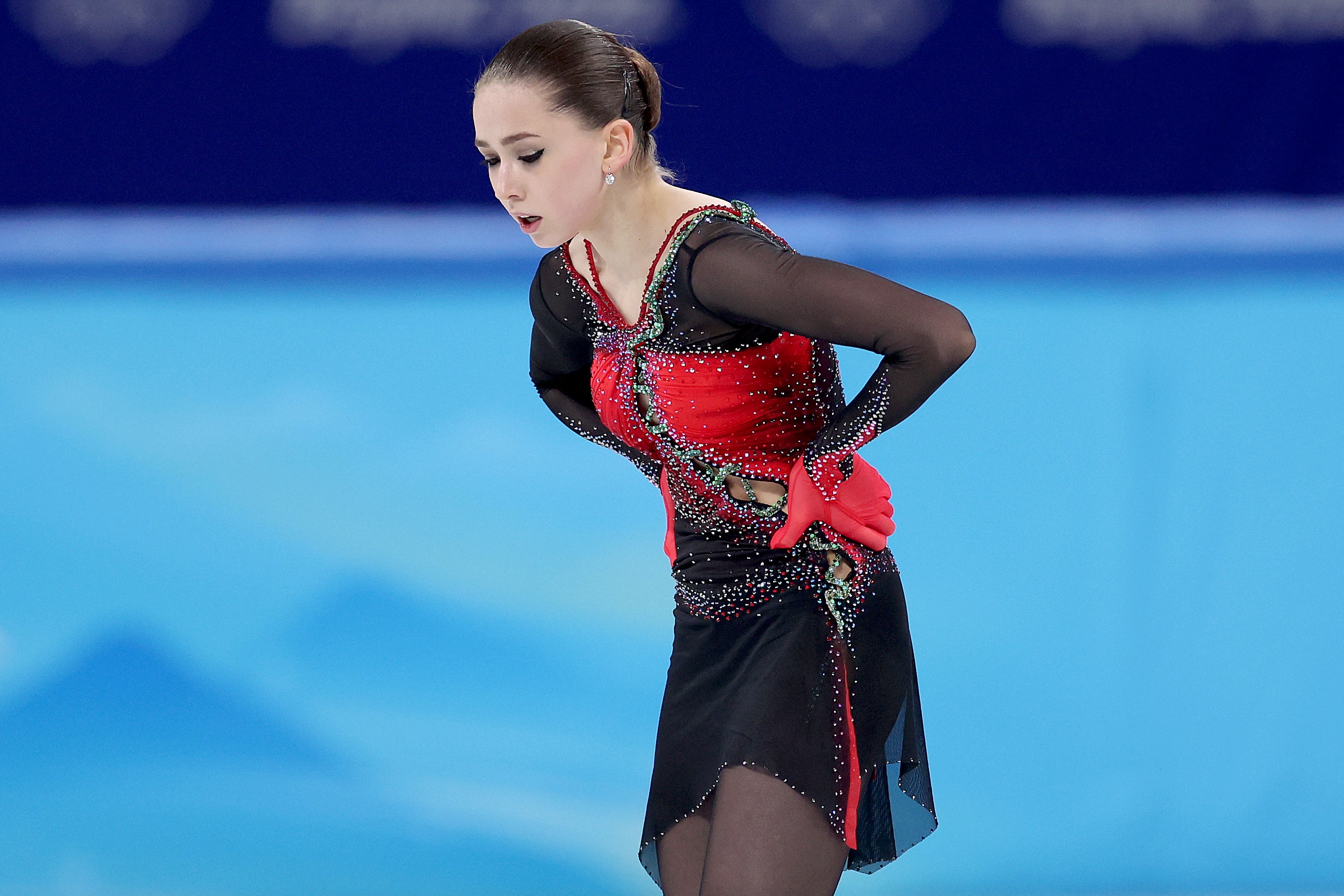
There was more fury and outrage weeks earlier in tennis when Novak Djokovic attempted to touch down in Melbourne in pursuit of a 10th Australian Open, clasping what he thought was a valid Covid vaccine exemption. Covid’s stranglehold on sport has loosened in recent months, yet the virus ensured a farcical saga here. Confusion over rules and laws saw prime minister Scott Morrison intervene and the Serbian was eventually deported for breach of Australia’s border rules. Many accused him of being remorseless but Djokovic left emboldened by his principles and perhaps a martyr to those vehemently against the vaccine. But his absence opened the door for Rafael Nadal’s renaissance in the battle of the all-time great male players to land the most grand slams.
An epic five-set victory over Daniil Medvedev, alongside his customary French Open months later, ensured he now leads Djokovic by one on 22 slams in men’s singles. That the gap is just one is down to the Serbian’s icy demeanour in the face of so much scrutiny. Djokovic was undeterred by the farcical theatrics of the mercurial Nick Kyrgios, beaten in four sets in this year’s Wimbledon final after producing the sublime and ridiculous across a fortnight.
A sixth Premier League crown in 11 seasons for Manchester City felt both inevitable and remarkably improbable thanks to a tenacious Liverpool and, for a while, a mischievous Aston Villa after snatching a 2-0 lead on the final day of the season. The Reds eventually did their job at home to Wolves, meaning Ilkay Gundogan’s divine intervention, inspiring three goals in five minutes, clinched glory for Pep Guardiola’s side. A rejuvenated Arsenal appear to be the only barrier to a seventh title in 12 seasons after City’s acquisition of the robotic marksman that is Erling Haaland. Already up to 23 goals in just 17 games, the Norwegian may finally ensure City secure that elusive European crown.
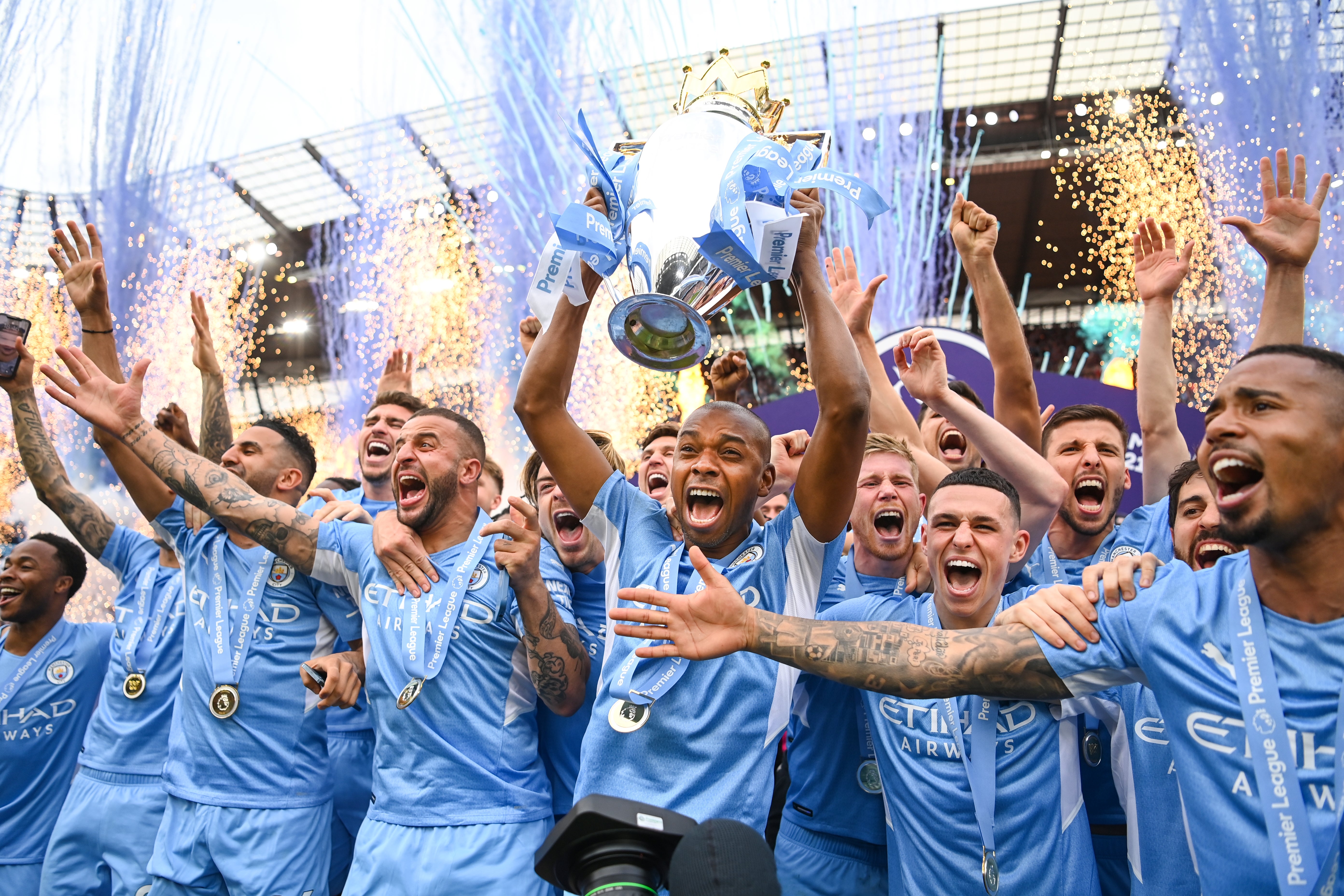
To do so, Real Madrid must therefore be dethroned, with the reinvention of Karim Benzema last season earning a fifth Champions League title in nine years. Vinicius Jr denied Liverpool a famous treble in that cagey Paris final. They will meet again in February to contest a place in the quarter-finals.
Other dynasties rumbled on, too, firstly in snooker, as Ronnie O’Sullivan won his seventh world title, finally pulling level with Stephen Hendry and, at 46, becoming the oldest champion in the sport’s history.
As so many titans of sport extended their dominance in 2022, Max Verstappen and Red Bull validated the shoots of their newfound and ever-tightening grip on Formula 1 despite new cars and rules for 2022, designed to ensure mere transient moments of success across a season to retain interest race to race. But the 25-year-old’s record 15 Grand Prix victories ensured the opposite and a procession towards his second world title, with hopes of a Ferrari renaissance premature and the first signs of a changing of the guard between George Russell, a first-time winner this year, and the illustrious Lewis Hamilton at Mercedes.
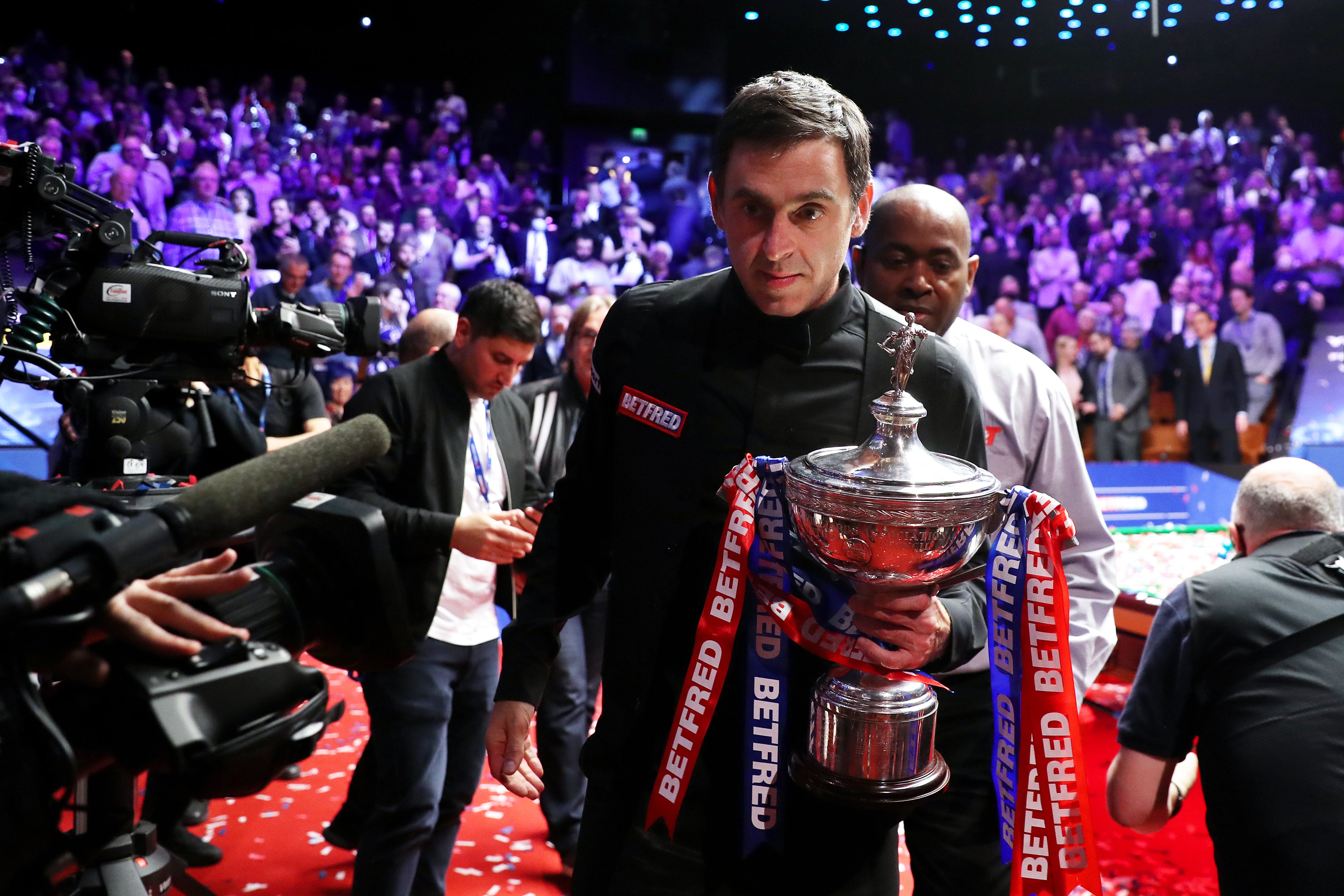
The underdog and great upsets
Whether it is Russell or another hungry contender, Verstappen must beware, as Tadej Pogacar discovered in pursuit of a third successive Tour de France title. The Slovenian’s daredevil style on the bike had already captured back-to-back yellow jerseys but it was Denmark’s Jonas Vingegaard, with Dutch powerhouse Jumbo-Visma behind him, who prevailed on one of sport’s most iconic stages, the Champs-Élysées.
While greatness is revered in sport, it is the upset or shock that ensures we return time and again. The rise of the underdog, the greatest of which eventually immortalised in Hollywood with tales that compare to Rocky Balboa.
Rarely will you find a more exhilarating minute of sport than when that fictional character’s namesake, British MMA fighter Leon ‘Rocky’ Edwards, knocked out Kamaru Usman to win the UFC welterweight title. Cutting a forlorn figure with less than a minute left in the fight, Edwards exploded into life, dispatching the pound-for-pound No1 fighter with a left high-kick. Britain’s second ever UFC champion. Goosebumps.
Boxing’s thirst for an undisputed heavyweight world title fight remains unsatisfied with Tyson Fury busy against overmatched domestic foes, although Oleksandr Usyk is now unshackled by contractual obligations after denying Anthony Joshua revenge in their rematch on that familiar sporting hotspot that is Jeddah.
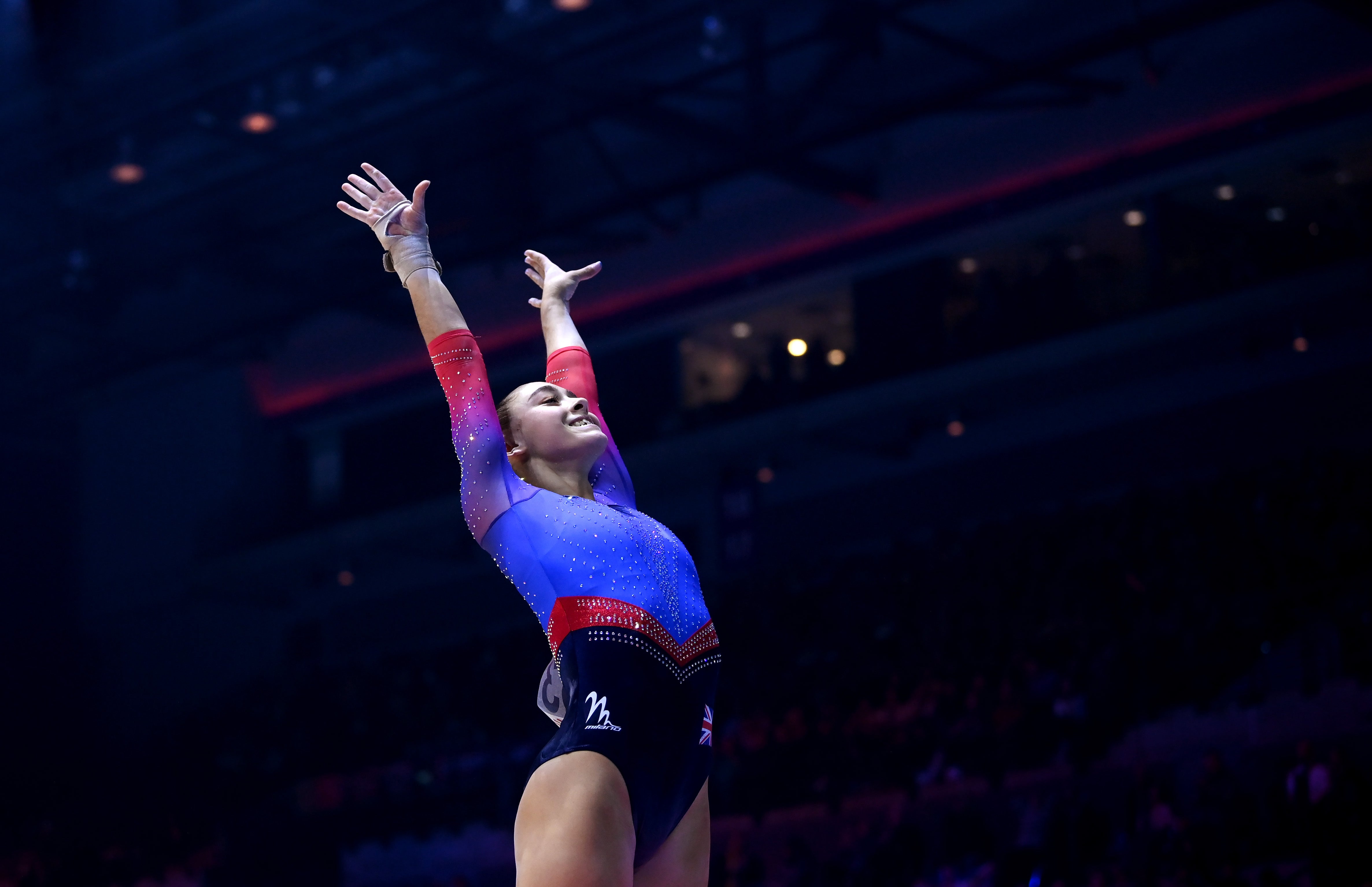
In contrast, Eugene and its rich history with middle and long distance running, saw Norway’s Olympic 1,500m champion Jakob Ingebrigtsen stunned by Great Britain’s Jake Wightman. The Scot’s gutsy dart for home from 200m out captured an unlikely gold in Team GB’s highlight from the Oregon World Championships. Wightman would be denied a glorious homecoming gold at the Birmingham Commonwealth Games by Australia’s Oliver Hoare, it was left to compatriot Eilish McColgan to provide home comforts with gold in the 10,000m. England’s dominance in artistic gymnastics, including a famous four gold medals for Jake Jarman, further underlines the immense potential on these shores, with 18-year-old Jessica Gadirova later becoming just the fifth individual British world champion after an immaculate floor gold in Liverpool.
Any champion will tell you that the journey to supremacy will start from a gloomy place, as demonstrated by the startling trajectory of the England men’s Test team this year.. Crushed 4-0 by Australia in the Ashes, England scarpered, licking their wounds and embarrassed into a complete reset to start the year. After the inevitable sacking of Chris Silverwood, a New Zealander emerged as England’s unlikely saviour in the most prestigious form of the game. Brendon McCullum, famed for his destructive style in the one-day game, was not an obvious fit, yet he has revitalised a nation and perhaps left the entire format shaken by ‘Bazball’. There was immense sympathy surrounding the masterful Joe Root’s fall as captain, but England were buoyed by the talismanic Ben Stokes’ leadership. A 3-0 series win over New Zealand, victory over India, a 2-1 series win over South Africa and the historic 3-0 whitewash of Pakistan completes an astounding turnaround.
The challenge now is to validate this upturn, notably in that first Ashes Test at Edgbaston in June. The standard has been set by Jos Buttler’s one-day side after England’s second T20 World Cup in Australia this year. Despite injuries and the crippling pressure from expectations, Buttler’s side delivered, knocking off Pakistan in the final with Sam Curran collecting player of the tournament.
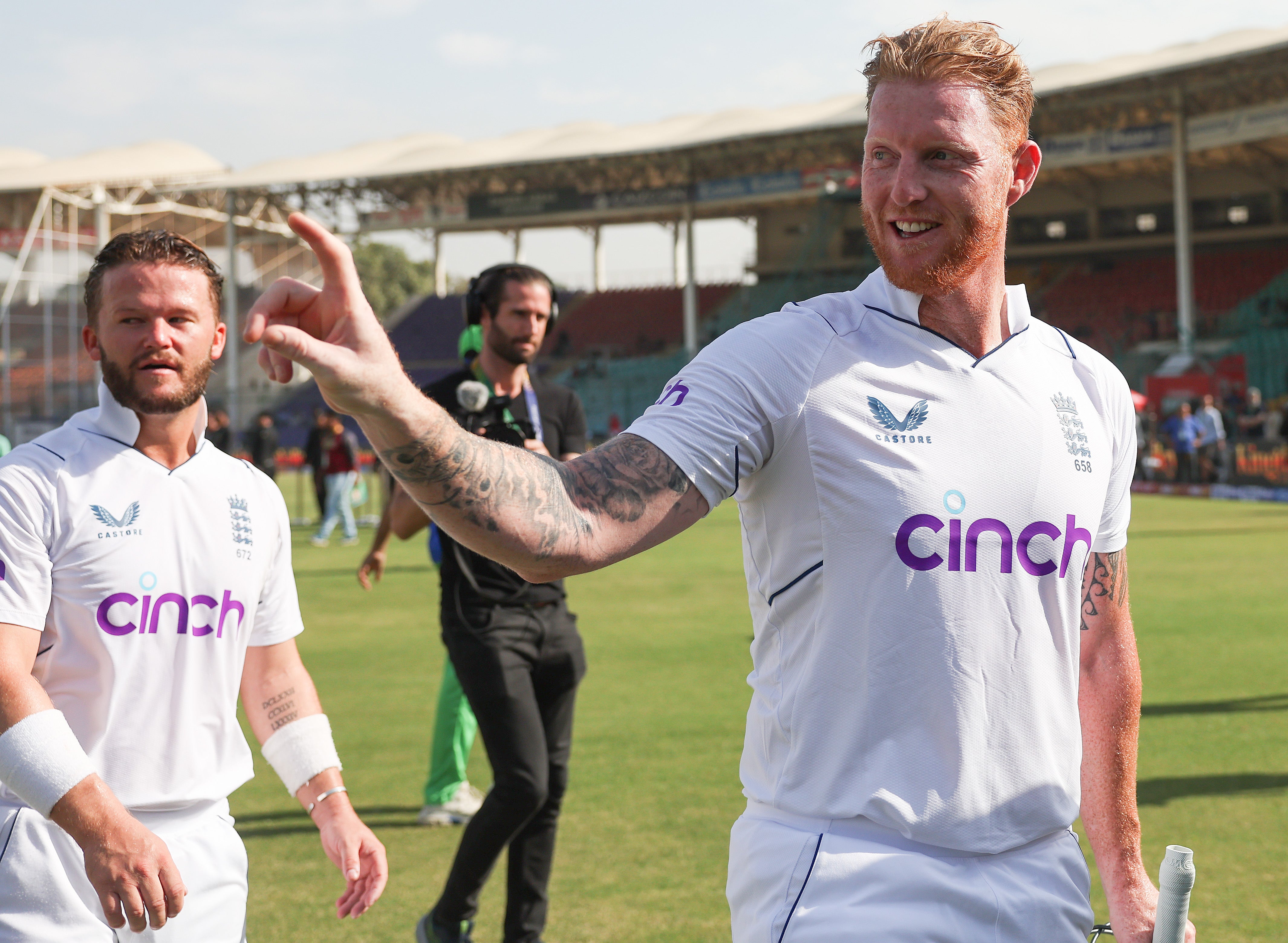
Rarely does a sport reach a point of parity whereby an underdog story is barely possible, and yet the journey to next year’s Rugby World Cup has meandered to a point where so many will consider themselves to be contenders. The abject nature of England and Wales make this further possible after ruthless moves to sack Eddie Jones and Wayne Pivac less than a year out in the quest to land the Webb Ellis Cup in France. Conventional wisdom tells you that there is scarcely enough time for Steve Borthwick and Warren Gatland to catch up, with the mesmeric evolution of the game. Les Bleus, Six Nations Championship and Grand Slam winners in 2022, and Andy Farrell’s Ireland, sitting pretty atop the world rankings in part due to a first-ever series victory in New Zealand, have added a dash of flair to their relentless brands of winning rugby. A bruised All Blacks side have already come again, while defending champions South Africa and their daunting physicality always pose a threat, making next year’s big dance an enticing prospect amid a feast of sport.
The long goodbye
While the seminal moments that create legends in sport undeniably provide the biggest highs, it is perhaps the long, drawn out goodbyes that these entertainers savour the most.
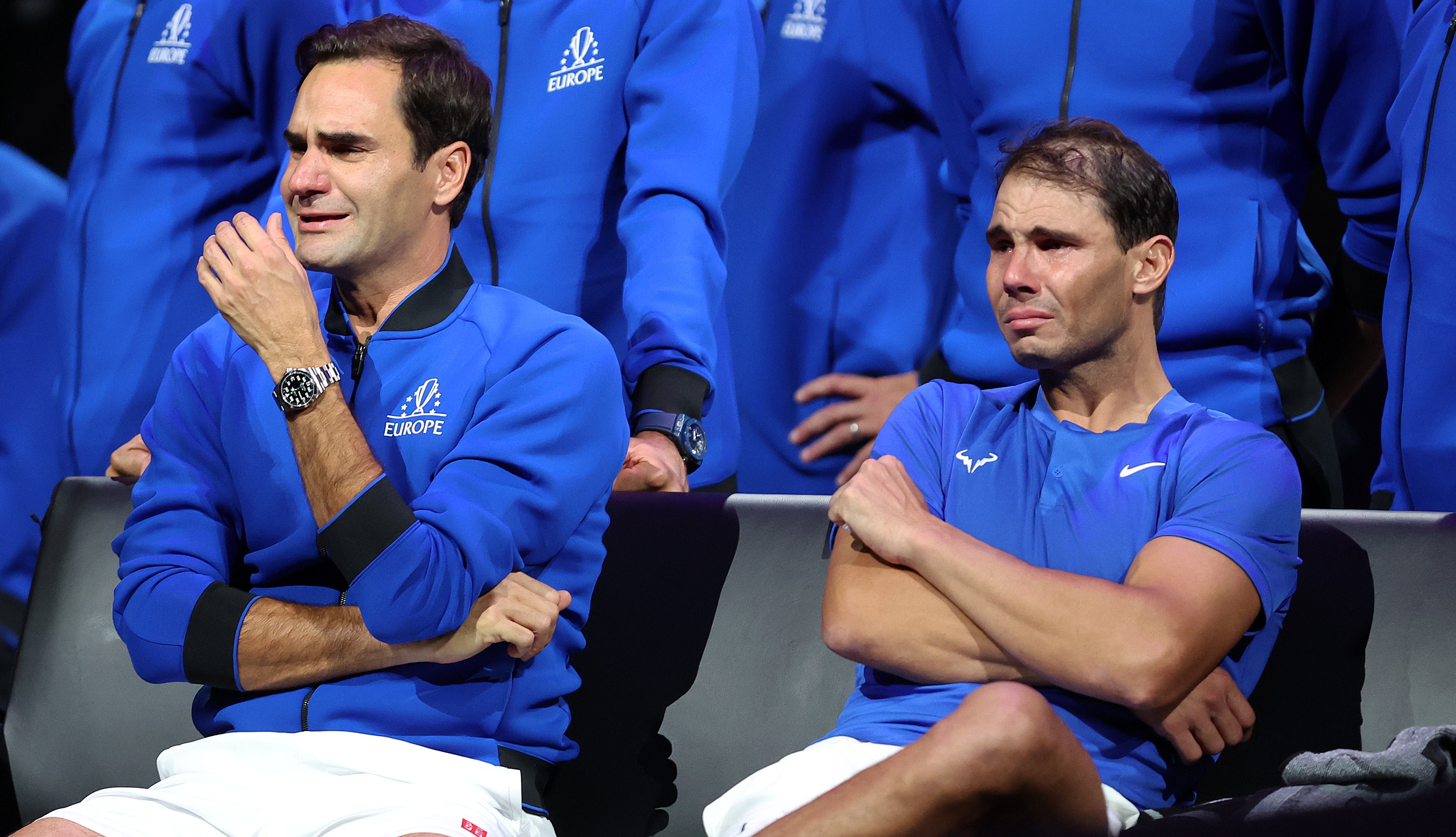
Tennis endured this more than any this year, most notably through Roger Federer’s anticipated retirement and emotional final rally alongside his greatest rival Rafael Nadal at the Laver Cup. Hands clasped after a doubles defeat to Frances Tiafoe and Jack Sock, the legendary rivals were left weeping in one of the most enduring images of 2022 or any year in sport.
It was not only the Swiss maestro who left us, amid confusion surrounding Serena Williams’ future in the sport. Initial claims of retirement were soon dismissed, meaning a complete celebration of the American’s immeasurable legacy in the sport is pushed back.
But if Federer’s time in the game fizzled out, with father time cruelly nudging him towards that inevitable decision, Ashleigh Barty seized control of her destiny after fulfilling a dream to triumph at Melbourne Park. Reflecting on Australian Open glory as the defending Wimbledon champion and world No1 at the time, the Australian bowed out at 25 years of age to “chase other dreams”.
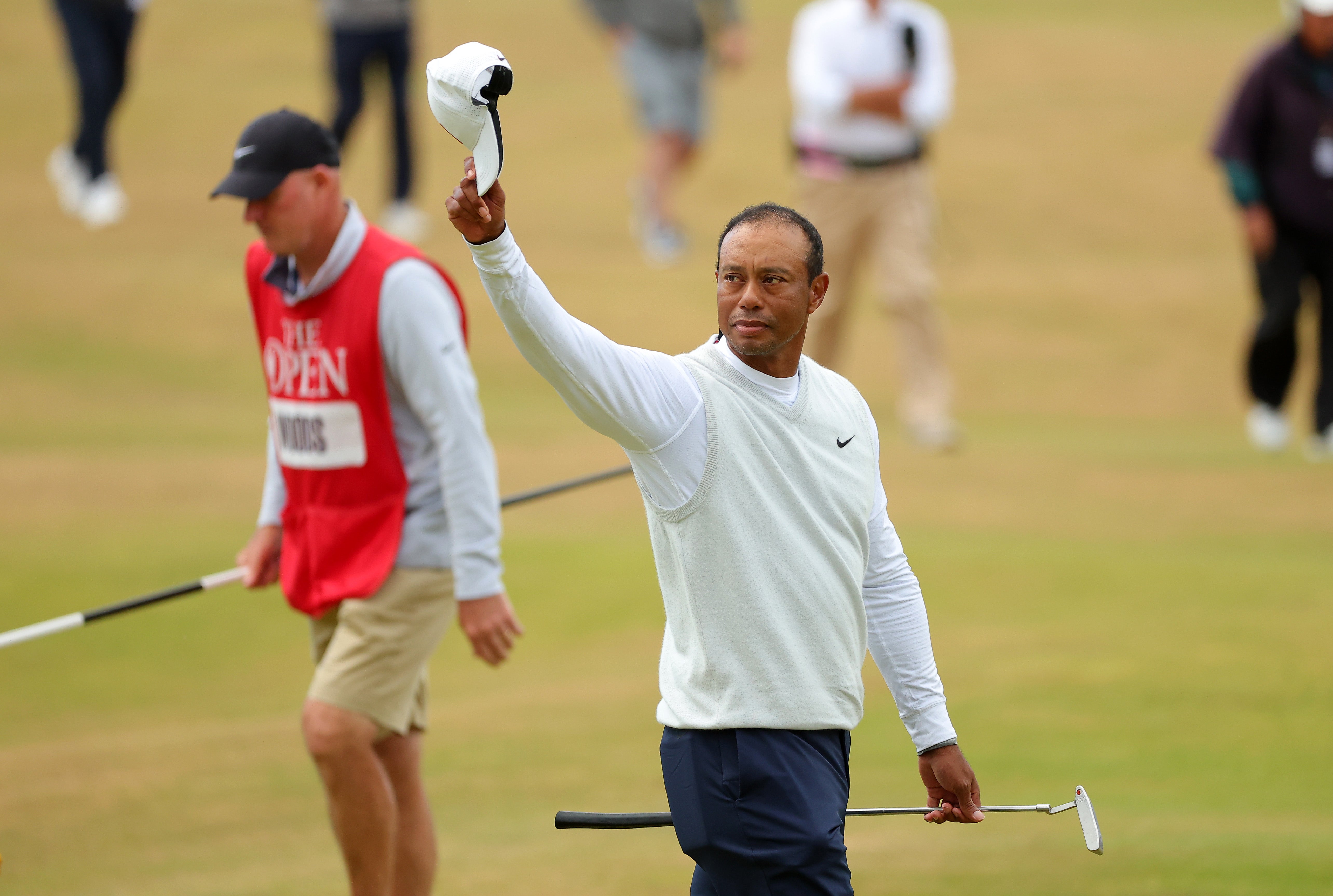
There were more elongated departures elsewhere, as Tiger Woods crossed the Swilcan Bridge at an Open Championship at St Andrews for likely the last time. It was still a joy to absorb the unmistakable image of the American wrestling with his now diminished game over two days around this most famous of Scottish links. The course was vulnerable at the historic 150th Open after such a benign summer, with Smith edging out McIlroy in a rivalry that could eventually define the sport.
Gone by the weekend, it was still a treat to watch Woods, who still has a few majors left in him, given the chilling images of his crumpled car from a year earlier. With focus dialled in on his next jaunt around Augusta in April, fans continue to cherish every major as if it is his last.
Such poignancy over our favourite athletes retiring pales in comparison to the sudden loss of those beloved by so many.
The tragic loss of Shane Warne, who died in March aged 52, only emphasised this, with cricket, sport and beyond scrambling to process such unexpected news.
A spin wizard, who took 708 Test wickets throughout a glittering career, it was Warne’s personality, as much as his sporting prowess, that left so many charmed. Including the English, who were often tormented by his brilliance over the years. His enthusiasm and passion for the game and generosity with his time as a teacher to the next generation leave an indelible mark on a sport with such a rich history. There have been tributes aplenty, yet next year’s sporting moments will undoubtedly include the Ashes and two eternal rivals’ common ground over Warne, who personified everything great about a sport and what makes it so special.




Join our commenting forum
Join thought-provoking conversations, follow other Independent readers and see their replies
Comments